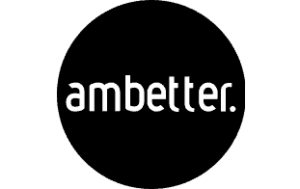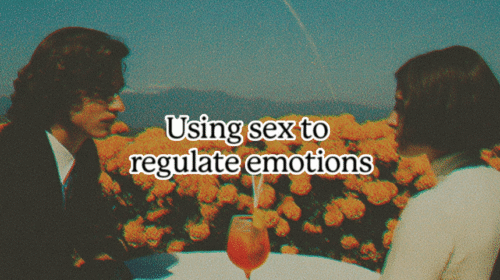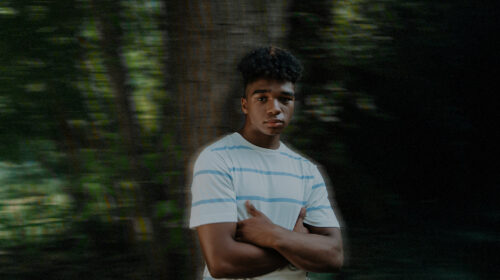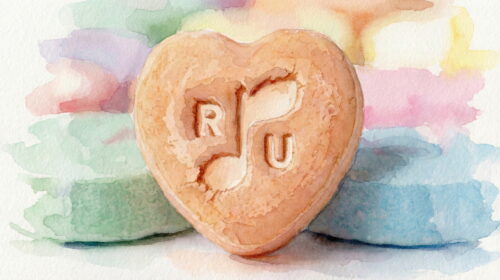6’2 because apparently that matters… Let’s tell people we met at Whole Foods… I order queso and guac for every table I’ve ever seen…
For most of human history, love was hard. Like, logistically hard. There were few people to meet, even fewer to choose from, and social interaction was largely dictated by geography, proximity, and circumstance. Love was a local phenomenon. If your neighbor’s cousin’s friend was nice and unmarried, that was your chance.
Now, love is hard in a different way. We can meet people at any moment—from our couches, waiting for coffee, even on a date with someone else. But in solving the problem of access, we may have stumbled into a deeper, more philosophical dilemma: what if it’s not about who we can meet, but what we expect from the meeting?
Courtship versus Compatibility Algorithms
Throughout most of Western history, romantic relationships were less about personal fulfillment and more about social alignment: securing land, families, or mutual survival. Even as we moved into the age of courtship, love remained a slow, communal process, governed by time, place, and social expectations.
But in the past 50 years—especially in the post-Tinder era—romantic relationships have become radically individualized. We are no longer looking for someone who simply fits our world; we are looking for someone who completes it. We swipe not to fulfill a role, but to fulfill a desire.
This shift has made love feel more personal than ever, tied to our identity, our fulfillment, our sense of self. And paradoxically, that has made it more fragile. When love becomes a mirror of who we are, any crack can feel like a personal fracture.
Access vs.Understanding
Dating apps like Tinder, Bumble, and Hinge have transformed romantic life. According to Statista, over 60 million Americans use dating apps every year, with higher usage among younger adults. These platforms offer, in theory, an endless buffet of potential partners, curated by filters, distance, and a few clever photos (cue the Largemouth bass pics).
But research shows the promise of infinite choice doesn’t necessarily lead to greater satisfaction. A 2021 study in Psychological Science found that too many options can lead to choice overload, reducing the likelihood of long-term commitment and increasing dissatisfaction, because we start to assume there’s always someone better just a swipe away.
It’s a paradox: the more people we can meet, the less willing we may be to stay.
More Users, Fewer Downloads
Between 2015 and 2024, the number of people actively using dating apps grew from around 250 million to over 350 million worldwide. At the same time, annual downloads declined from 370 million in 2022 to under 300 million in 2024.
This isn’t a sign that dating apps are fading. It’s the opposite. It means people aren’t deleting them anymore. They’re staying. You know when you swipe so far you run out of people and it just keeps showing you the same person in medical device sales for like, 4 straight years? It’s because they’re not learning, and neither are you.
Dating apps have become less like a temporary tool and more like digital infrastructure, something we log in and out of when we feel hopeful, lonely, bored, or brave. The fact that more people are using apps while fewer are downloading them reveals something pretty disturbing: we’re not cycling through apps. We’re cycling through each other.
It’s not that love has become easier to find, it’s that the search has become harder to leave.
The Loneliness of Endless Access
For many users, dating apps aren’t exciting; they’re exhausting. Constant swiping. Conversations that fizzle. Ghosting. Breadcrumbing. Those weird voice notes where the guy makes his voice super deep. Too many “good on paper” matches that go nowhere. This slow grind leads to what psychologists now call dating fatigue—an emotional burnout that stems not from rejection, but repetition.
Dating apps keep us in motion, but rarely let us rest. Even when we want something real, we end up spending more time managing connections than building them. The result is a familiar ache: not just loneliness, but the loneliness that comes after the matches fail to stick.
What is “Effortless Love”?
The fantasy that drives so much of modern dating is the idea that love should be easy. That the right person will understand us intuitively. That we won’t have to explain ourselves. That attraction will equal alignment. That if we’re struggling, it must be because we chose wrong.
This is what we mean by “effortless love”: not just romance without work, but romance without friction.
It’s a seductive idea, but a false one. True love, the kind of love that endures and deepens, is full of friction. It demands communication, a willingness to repair, and learning how to be known even when you feel messy or misunderstood. It requires sustained intention in the pursuit of something meaningful, fulfilling, and lasting.
Love as a Product, Not a Practice
In many ways, the dating app experience has trained us to view love as a product, something we acquire when we find the right “fit.” But emotional connection isn’t seamless. It’s a messy, ongoing process deeply tied to our own emotional development. As people we should always seek to evolve, and evolving with someone rather than away from them takes effort from both parties. We are all flawed, none of us without our secret chapters we don’t want anyone else to read. If we cannot embrace that reality and the need for vulnerability in intimate relationships, we’ll continue to move on from people who might’ve liked to get to know the darker parts of us in favor of people who appreciate a charming, curated, controlled facade.
We may have become easier to meet, but we are not any easier to love.
Apps haven’t made us more patient. They haven’t made us better communicators. They haven’t made us more aware of our own psychological baggage. They’ve just made it easier to delay that work by offering the illusion of endless possibility.
According to therapist Esther Perel, one of the most profound shifts in modern love is the rise of what she calls “the consumerist model of romance.” We shop for partners like we do headphones: reading specs, comparing options, and returning when unsatisfied.
But we’re not headphones, build for compatibility right out of the box. If anything, we’re a sturdy fridge from the 1970’s—might take some work, but will last forever.
But to get away from comparing electronics to people (hello, my hellscape), let’s consider what this model is really telling us: When we approach love with a return policy mindset, we train ourselves to abandon instead of invest. And over time, that habit hollows us. It becomes harder to trust in others intentions, to risk our emotional safety, to believe that anyone—including ourselves—could be worth the trouble.
Love is Hard
One of the most enduring illusions in modern dating is the belief that if it’s hard, it’s wrong. When things get difficult, we assume we haven’t found the “right” person, rather than confronting the deeper truth: most relationships, even good ones, involve conflict, miscommunication, and emotional friction.
A study in Personal Relationships found that couples who saw conflict as a natural part of intimacy were more likely to stay together and report long-term satisfaction. Those who believed that conflict meant incompatibility were more likely to split.
Dating apps can’t teach us this. If anything, they may obscure it, offering a steady stream of alternatives that feel easier only because they’re still unknown.
Love is Work
Emotional maturity, empathy, and secure attachment can be cultivated. In fact, therapists increasingly emphasize the importance of “relational skills”—things like active listening, self-regulation, and conflict repair—as foundational to lasting connection.
Psychologist and researcher Dr. Alexandra Solomon calls this “relational self-awareness”, the ability to understand not just what we want in a partner, but how we show up in relationships. The best dating strategy might not be a better profile. It might be knowing how you respond when you’re triggered, ignored, or seen.
What Do We Do?
To fight the pitfalls of modern dating, we have to reclaim it from the mindset of performance and consumption. That means taking breaks from the apps when they feel exhausting, meeting people in real life through hobbies or community, and treating each interaction as an opportunity for growth, not just a means to an end. Even mismatched dates can teach us something valuable about our needs and boundaries. Flirting should feel fun, we shouldn’t dread having to tell another new person our favorite color. Dating should never feel transactional.
Love doesn’t require perfection. It requires patience, accountability, and the humility to recognize that you, too, are a difficult and wonderful person to love.
Once we accept that—embrace it even—we can shift our energy away from the exhausting cycle of first impressions and toward the kind of emotional growth that makes lasting love possible.
Because while dating apps may have expanded our choices, they haven’t expanded our capacity. Real love is rare not because it’s hidden, but because it’s hard. And anything hard, by nature, takes work.























